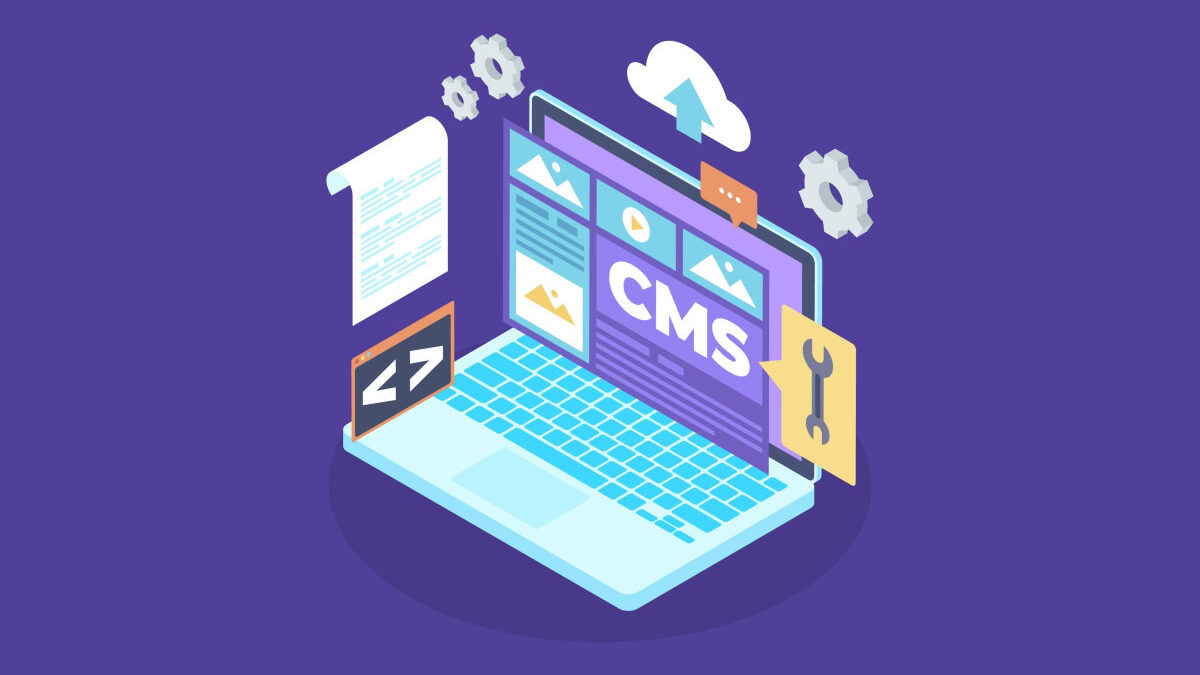
All You Need to Know About Cloud Computing
June 10, 2020
The Complete Guide to E-learning
December 14, 2020A content management system (CMS) is an application that helps users to manage, create, edit, and publish content on a website without requiring specialized technical skills. In other words, a content management system is a tool that allows users to create a website even if they are not able to code at all. The content management system helps users to create web pages, store images, and other functions in a very simple manner by handling the entire basic infrastructure so they can stay focused on other aspects of the website. Aside from websites, this system is also useful for tasks such as document management. The following are some information you should know about CMS:
The second remarkable advantage of this system is that people with the least technical knowledge that are not familiar with programming languages can easily create and manage their website content. With the help of WYSIWYG (What You See Is What You Get) editors of a typical platform for content management, users can enter content such as text or images without requiring any knowledge of HTML or CSS.
Benefiting from CMS for publishing the webpages reduces the need for front-end engineers for making changes in the website and makes it quicker and easier for creating and publishing the contents.
You can start by listing the business challenges you are facing and any other special needs you may have. This enables you to choose a content management system that is appropriate for your business, rather than the most popular or famous ones.
There are several CMSs in different shapes and sizes, each with its own special features and advantages. Some are suitable for e-commerce along with pricing and accounting features, while some are perfect for blogging. You need to choose your right CMS based on your company’s requirements and resources.
These questions will help you with the decision-making process:
How much is your budget?
In case you have a limitless budget to decide which CMS to choose, you have various content management systems in front of you as options. And of course, with having a low budget, your choice will be limited. What are the operations CMS has to support?
CMS has to support what business operations?
After estimating the CMSs prices, you need to consider which business operations you need CMS support. Does your company host many images for blog posts or publish hundreds of videos daily?
CMS needs to support or integrate what kind of technologies?
Before choosing a system, you need to evaluate if your company uses a CRM, ERP, or web analytics program. If so, you will need to think of a CMS that has the capacity to integrate with existing software.
Is it easy to manage content?
The larger the company, the more removed the end-user of the CMS will be from the person who implements it. The ideal is that by benefiting from features such as a WYSIWYG editor, using the system will be easy and intuitive.
How many different groups will use CMS?
Another factor in choosing a CMS is the different groups of administration. Various users’ roles such as admin, editor, or authors should be considered in picking the right system.
Is SEO important?
If SEO has a significant role in your company, you will need a CMS that automatically manages the essential on-page optimization tasks like title tags, urls, alt tags on images, and a sound internal linking structure.
How many developers do you have?
CMS platforms such as Wordpress and Drupal allow you to use the assistance of many developers. This is an advantage for the number of online help and documentation you will have on most aspects of customization.
Take your time carefully and think about the questions above. Inquire your co-workers from different departments if needed, to finally select the suitable content management system for your business or organization.
Main features of a content management system
Here are the main features of a content management system:- Content creation (allows users to create and format content very easily)
- Content storage (keeps content in one place, consistently)
- Workflow management (appoints responsibilities based on roles like authors, editors, and admins)
- Publishing (organizes and pushes content live)
Content Management System Advantages
The possibility of performing tasks collaboratively is one of the most significant advantages of CMS. Many users are able to log on and work on different contents, such as editing, scheduling, and contributing simultaneously. Since the interface is typically based on a browser, CMS is access able from any place and by any number of users.The second remarkable advantage of this system is that people with the least technical knowledge that are not familiar with programming languages can easily create and manage their website content. With the help of WYSIWYG (What You See Is What You Get) editors of a typical platform for content management, users can enter content such as text or images without requiring any knowledge of HTML or CSS.
Benefiting from CMS for publishing the webpages reduces the need for front-end engineers for making changes in the website and makes it quicker and easier for creating and publishing the contents.
Tips for choosing a CMS
In choosing a content management system it is recommended to check your company’s information management practices and long-term business goals with the consideration of content publishing.You can start by listing the business challenges you are facing and any other special needs you may have. This enables you to choose a content management system that is appropriate for your business, rather than the most popular or famous ones.
There are several CMSs in different shapes and sizes, each with its own special features and advantages. Some are suitable for e-commerce along with pricing and accounting features, while some are perfect for blogging. You need to choose your right CMS based on your company’s requirements and resources.
These questions will help you with the decision-making process:
How much is your budget?
In case you have a limitless budget to decide which CMS to choose, you have various content management systems in front of you as options. And of course, with having a low budget, your choice will be limited. What are the operations CMS has to support?
CMS has to support what business operations?
After estimating the CMSs prices, you need to consider which business operations you need CMS support. Does your company host many images for blog posts or publish hundreds of videos daily?
CMS needs to support or integrate what kind of technologies?
Before choosing a system, you need to evaluate if your company uses a CRM, ERP, or web analytics program. If so, you will need to think of a CMS that has the capacity to integrate with existing software.
Is it easy to manage content?
The larger the company, the more removed the end-user of the CMS will be from the person who implements it. The ideal is that by benefiting from features such as a WYSIWYG editor, using the system will be easy and intuitive.
How many different groups will use CMS?
Another factor in choosing a CMS is the different groups of administration. Various users’ roles such as admin, editor, or authors should be considered in picking the right system.
Is SEO important?
If SEO has a significant role in your company, you will need a CMS that automatically manages the essential on-page optimization tasks like title tags, urls, alt tags on images, and a sound internal linking structure.
How many developers do you have?
CMS platforms such as Wordpress and Drupal allow you to use the assistance of many developers. This is an advantage for the number of online help and documentation you will have on most aspects of customization.
Take your time carefully and think about the questions above. Inquire your co-workers from different departments if needed, to finally select the suitable content management system for your business or organization.




